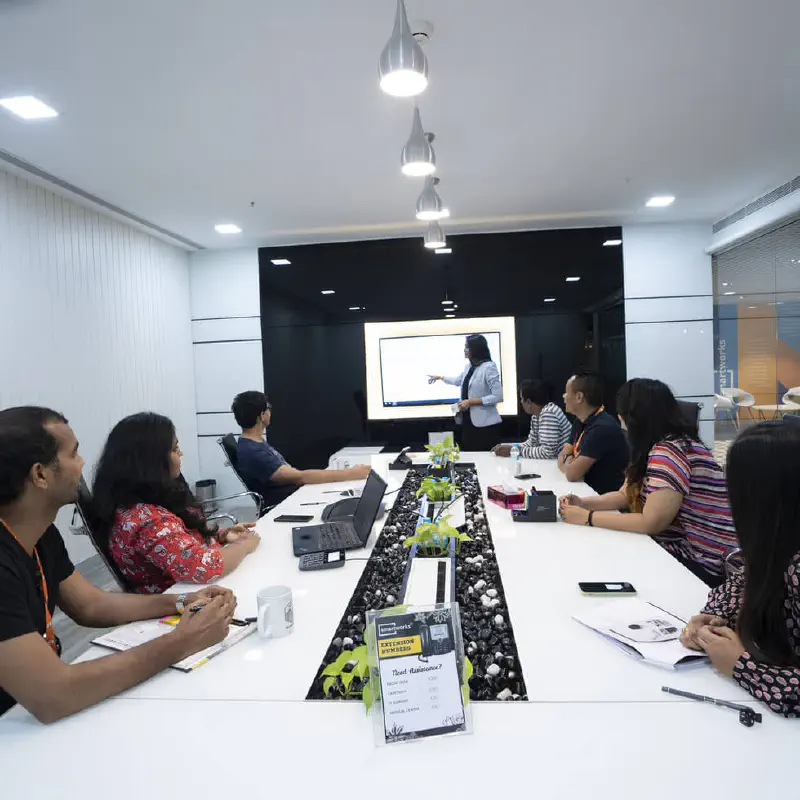If a global pandemic was enough proof, we know now more than ever that our mental health intersects with our workplace. We cannot always separate the two. Employees no longer just want to feel financially supported at work. Employees want to work with organizations that build a culture of openness, sensitivity and respect towards their employees’ emotional health, and not limit interactions only to their professional targets and deadlines.
If you’re a manager at an organization and you have been leading a team of people with incredible potential, how many times have you felt like you wish you knew how to better support your colleagues emotionally?
Have you ever recognized the need for having conversations with your team members about mental health and self-care, but did not know how to initiate them? Where does one start? How does a manager encourage more openness towards mental well-being without putting the employees on the spot or making them feel uncomfortable?
Employee well-being programmes are crucial in this journey of not just helping you support your employees better, but also to help you unlearn the many nuances you’ve taken for granted related to mental health well-being and culture building in an organization.
Why Mental Health Workshops can be Beneficial for Employees and Managers:
A mental health workshop is a great way for employees to learn more about mental wellbeing at work. It can be a chance to learn about the different aspects of mental health, and what it means to take care of yourself emotionally and mentally.
If the workshop is created well as a safe space, it encourages employees to connect with each other and carry back the knowledge that they are not alone in their struggles and experiences.
Workshops are also an opportunity for managers to learn how they can support their employees with their mental wellbeing. Managers can learn how they can offer help and advice, as well as how they can create a positive, psychologically safe and sensitive workplace environment.
5 Tips for Running a Successful Mental Health Workshop:
Running a workshop can be stressful. There are a number of different factors to consider, including the size of the participant group, their goals and who the workshop is for. However, with a few simple tips, you will definitely be able to run a successful workshop with your employees:
- Invite the right facilitators to your workshop.
Choosing a mental health organization and/or professional to facilitate your workshop is an important first step. Their values and stance towards mental well-being ideally should focus on supporting and listening to your employees and championing their emotional health. They should be able to convey a clear idea of their workshop’s intentions and what they hope to make possible for your team.
- Create a clear outline of what the workshop will be about.
Spend some time with your internal team to delineate the key outcomes or themes for the mental health workshop that you would like the professional to touch upon. This will help you communicate your company’s expectations for the workshop clearly to the mental health organization that you choose to go with.
- Keep the workshop interactive.
A crucial aspect of successful workshops is how engaging and interactive they are with the participants. Mental health workshops ideally should focus on creating a safe space and encouraging participants to sensitively introspect about the topic and take back some concrete coping tools. If the workshop becomes a one-sided lecture or didactic in its delivery, it may quickly turn into a classroom rather than a space of equals. Workshops can be made more engaging by including experiential activities and exercises that the participants can do along with the facilitator during the workshop.
- Be prepared for any questions or concerns that participants might have.
Mental health workshops can be an opportunity for employees to ask questions, clarify doubts and share concerns that they may have related to the topic and its connection with the workplace environment. It helps to dedicate some time for QnA with participants so that they can freely open up with the facilitator, ask questions and personalize the workshop’s learnings for themselves.
- Organize workshops during working hours.
Advocating for a healthy work-life balance also means that you are mindful and respectful of your employees’ energy, capacity and time. Mental health workshops, or any workshop for that matter, would be best organized during your team’s working hours so that they are not devoting extra time, resources, and energy towards this initiative. This may also help boost their willingness and enthusiasm to attend the workshop and actively engage with it.
- Bonus Tip: Don’t make attendance compulsory.
One of the biggest mistakes managers make is to force their colleagues to attend the workshops you’ve scheduled. While we know that the employees would really benefit from the workshop, it becomes important for us to draw them into the workshop with a story. If it’s a virtual workshop, don’t record the session. Draw your colleagues into the experience by helping them understand the intimate safe space it’s going to be. This helps increase audience participation and helps improve team morale for workshops that are about skill building or personal development.
When is the best time to organize employee wellbeing workshops?
If you ask us, the best time is always yesterday. We urge all our corporate client partners to look at wellbeing workshops on a pro-active basis, rather than a reactive one. For an example, let’s assume you’ve noticed your colleagues experience burnout.
Burnout can lead to a lack of motivation at work or even a departure from the company. By recognizing the signs of burnout, managers can help stop the problem and support their employees at the right time.
In order to prevent burnout, it is important to take care of your employees’ mental health more proactively. We always advocate for employee well-being workshops to be a proactive and intentional initiative, rather than a knee-jerk reaction.
You can organize mental wellness workshops even when things are going positively or successfully at your company. Mental health does not have to be a conversation that waits only when severe problems arise. Workshops can be a great way to initiate the conversation on mental health, support employees with knowledge and strategies to help them cope better, and also allow the company to identify the root causes of these problems within the workplace structure and culture so that they can be fixed before they get worse.
How do we do this alone?
You don’t. You can trust organizations like ours that work passionately in this space, to help you support the well-being of your colleagues. Learn more by clicking on the button below!


















